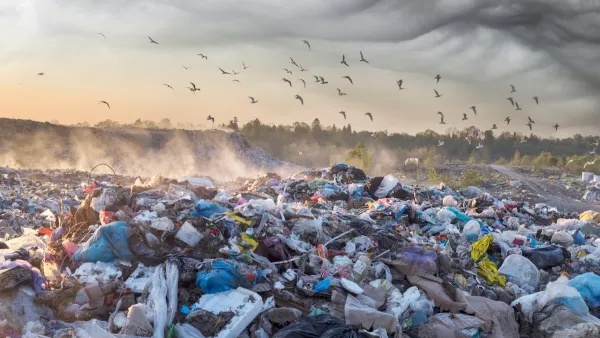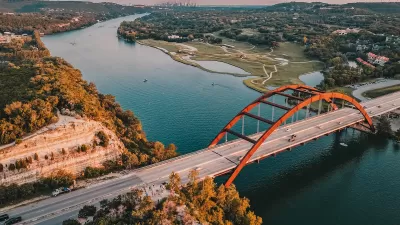Without the wealth for recycling, Indian cities like Bangalore rely on informal traders to collect and sell recyclable materials. Could this tech hub provide a model of trash disposal for cities in the developing and developed world alike?
"In India," says Poonam Kasturi, "we're famous for keeping our homes clean and our cities dirty." But the issue of waste management became a hot button issue in Bangalore this past August when city employees went on a strike and landfills shut down. "Even the wealthier corners of the city were faced with the unpleasant realities of moved rubbish," writes Mark Bergen, "And considerable public health concerns, particularly of the spread of dengue fever, persisted after the workers returned."
Indian cities do not generally have the funds available for recycling programs, but informal traders "process around a third of the 3,500 tons of waste generated in the city per day." After the strike, Bangaloreans turned to these informal recyclers for information on how to better manage and compost their trash. "Informal recycling is a huge plus," says Sandya Narayanan, "which we don't have anywhere else in the world." She believes that this model could possibly serve as an example for other emerging nations.
"As it is now," states Bergen, "the city's model is far from ideal." The informal traders work at their own risk with few safety and environmental regulations. "Yet the movement to educate on safety and segregation and limit the waste shipped to the city's landfills is gaining speed."
FULL STORY: The Developing World's Most Innovative City for Trash Management Is ... Bangalore?

Planetizen Federal Action Tracker
A weekly monitor of how Trump’s orders and actions are impacting planners and planning in America.

Maui's Vacation Rental Debate Turns Ugly
Verbal attacks, misinformation campaigns and fistfights plague a high-stakes debate to convert thousands of vacation rentals into long-term housing.

San Francisco Suspends Traffic Calming Amidst Record Deaths
Citing “a challenging fiscal landscape,” the city will cease the program on the heels of 42 traffic deaths, including 24 pedestrians.

Defunct Pittsburgh Power Plant to Become Residential Tower
A decommissioned steam heat plant will be redeveloped into almost 100 affordable housing units.

Trump Prompts Restructuring of Transportation Research Board in “Unprecedented Overreach”
The TRB has eliminated more than half of its committees including those focused on climate, equity, and cities.

Amtrak Rolls Out New Orleans to Alabama “Mardi Gras” Train
The new service will operate morning and evening departures between Mobile and New Orleans.
Urban Design for Planners 1: Software Tools
This six-course series explores essential urban design concepts using open source software and equips planners with the tools they need to participate fully in the urban design process.
Planning for Universal Design
Learn the tools for implementing Universal Design in planning regulations.
Heyer Gruel & Associates PA
JM Goldson LLC
Custer County Colorado
City of Camden Redevelopment Agency
City of Astoria
Transportation Research & Education Center (TREC) at Portland State University
Jefferson Parish Government
Camden Redevelopment Agency
City of Claremont





























